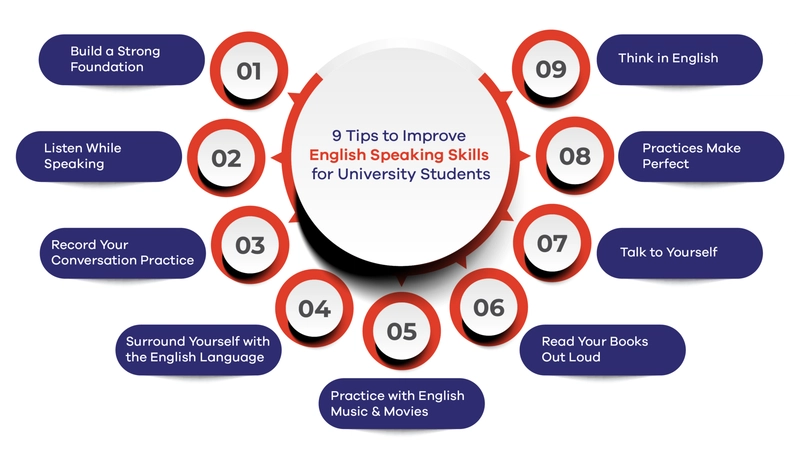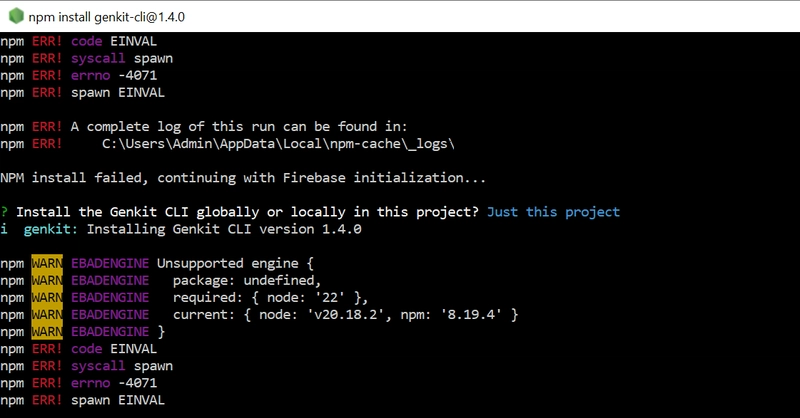improve English
How to Improve Your English: Speaking, Writing, Reading, and Listening English is one of the most widely spoken languages in the world, and mastering it can open doors to new opportunities in education, career, and communication. To become proficient in English, one must focus on four key areas: speaking, writing, reading, and listening. Here are some effective strategies to improve each of these skills. 1. Improving English Speaking Skills Speaking fluently in English requires regular practice and confidence. Here are some practical ways to enhance your speaking skills: Engage in Conversations: Talk to friends, family, or language partners in English. Practicing with native or fluent speakers will help build confidence. Think in English: Instead of translating thoughts from your native language, try thinking in English. This will make your responses more natural and fluent. Use Mirror Practice: Stand in front of a mirror and speak on different topics. This technique improves self-confidence and helps with pronunciation. Watch and Imitate: Watch English movies, TV shows, and YouTube videos. Try imitating the pronunciation and expressions used by native speakers. Join Speaking Clubs: Many online and offline platforms offer English-speaking clubs where you can practice and get feedback from others. 2. Enhancing English Writing Skills Writing in English requires a strong vocabulary, correct grammar, and clarity. Here’s how to improve: Maintain a Journal: Write about your daily activities, thoughts, or experiences in English. This helps in forming structured sentences. Expand Your Vocabulary: Learn new words every day and use them in sentences. Keep a vocabulary notebook to track progress. Practice Writing Essays and Letters: Try writing formal and informal pieces on different topics. This will help improve your ability to express ideas clearly. Use Online Grammar and Spell Checkers: Tools like Grammarly and Hemingway Editor can help refine your writing by correcting errors. Get Feedback: Ask teachers or native speakers to review your writing and suggest improvements. 3. Strengthening English Reading Skills Reading is essential for vocabulary expansion and comprehension. Here’s how to become a better reader: Read Every Day: Start with simple books, newspapers, and blogs. Gradually move to more complex materials like novels and research articles. Use Context Clues: If you encounter an unfamiliar word, try to understand its meaning based on the surrounding text instead of immediately looking it up. Summarize What You Read: After reading an article or book chapter, summarize it in your own words. This helps with comprehension and memory. Join a Book Club: Being part of a book club allows discussion and better understanding of different perspectives. Practice Skimming and Scanning: Learn to quickly identify key points in a text while reading efficiently. 4. Boosting English Listening Skills Listening is crucial for understanding spoken English and improving pronunciation. Here’s how to develop better listening skills: Listen to English Podcasts and Audiobooks: Choose topics that interest you and listen regularly to improve comprehension and pronunciation. Watch English Movies with Subtitles: This helps in associating spoken words with their written form, making it easier to understand accents and expressions. Engage in Active Listening: Focus entirely on the speaker and avoid distractions. Take notes if necessary to retain key points. Repeat and Shadow: Listen to short audio clips, pause, and repeat what you hear. This helps with pronunciation and rhythm. Attend English Webinars and Lectures: Listening to expert speakers improves understanding of different tones, accents, and speaking styles. Conclusion Improving English skills requires dedication and consistent practice. By focusing on speaking, writing, reading, and listening, you can gradually become more fluent and confident in the language. Make use of available resources, engage in real-life practice, and track your progress to achieve success in mastering English.

How to Improve Your English: Speaking, Writing, Reading, and Listening
English is one of the most widely spoken languages in the world, and mastering it can open doors to new opportunities in education, career, and communication. To become proficient in English, one must focus on four key areas: speaking, writing, reading, and listening. Here are some effective strategies to improve each of these skills.
1. Improving English Speaking Skills
Speaking fluently in English requires regular practice and confidence. Here are some practical ways to enhance your speaking skills:
- Engage in Conversations: Talk to friends, family, or language partners in English. Practicing with native or fluent speakers will help build confidence.
- Think in English: Instead of translating thoughts from your native language, try thinking in English. This will make your responses more natural and fluent.
- Use Mirror Practice: Stand in front of a mirror and speak on different topics. This technique improves self-confidence and helps with pronunciation.
- Watch and Imitate: Watch English movies, TV shows, and YouTube videos. Try imitating the pronunciation and expressions used by native speakers.
- Join Speaking Clubs: Many online and offline platforms offer English-speaking clubs where you can practice and get feedback from others.
2. Enhancing English Writing Skills
Writing in English requires a strong vocabulary, correct grammar, and clarity. Here’s how to improve:
- Maintain a Journal: Write about your daily activities, thoughts, or experiences in English. This helps in forming structured sentences.
- Expand Your Vocabulary: Learn new words every day and use them in sentences. Keep a vocabulary notebook to track progress.
- Practice Writing Essays and Letters: Try writing formal and informal pieces on different topics. This will help improve your ability to express ideas clearly.
- Use Online Grammar and Spell Checkers: Tools like Grammarly and Hemingway Editor can help refine your writing by correcting errors.
- Get Feedback: Ask teachers or native speakers to review your writing and suggest improvements.
3. Strengthening English Reading Skills
Reading is essential for vocabulary expansion and comprehension. Here’s how to become a better reader:
- Read Every Day: Start with simple books, newspapers, and blogs. Gradually move to more complex materials like novels and research articles.
- Use Context Clues: If you encounter an unfamiliar word, try to understand its meaning based on the surrounding text instead of immediately looking it up.
- Summarize What You Read: After reading an article or book chapter, summarize it in your own words. This helps with comprehension and memory.
- Join a Book Club: Being part of a book club allows discussion and better understanding of different perspectives.
- Practice Skimming and Scanning: Learn to quickly identify key points in a text while reading efficiently.
4. Boosting English Listening Skills
Listening is crucial for understanding spoken English and improving pronunciation. Here’s how to develop better listening skills:
- Listen to English Podcasts and Audiobooks: Choose topics that interest you and listen regularly to improve comprehension and pronunciation.
- Watch English Movies with Subtitles: This helps in associating spoken words with their written form, making it easier to understand accents and expressions.
- Engage in Active Listening: Focus entirely on the speaker and avoid distractions. Take notes if necessary to retain key points.
- Repeat and Shadow: Listen to short audio clips, pause, and repeat what you hear. This helps with pronunciation and rhythm.
- Attend English Webinars and Lectures: Listening to expert speakers improves understanding of different tones, accents, and speaking styles.
Conclusion
Improving English skills requires dedication and consistent practice. By focusing on speaking, writing, reading, and listening, you can gradually become more fluent and confident in the language. Make use of available resources, engage in real-life practice, and track your progress to achieve success in mastering English.




















































%20Abstract%20Background%20112024%20SOURCE%20Amazon.jpg)






















































































































![[The AI Show Episode 142]: ChatGPT’s New Image Generator, Studio Ghibli Craze and Backlash, Gemini 2.5, OpenAI Academy, 4o Updates, Vibe Marketing & xAI Acquires X](https://www.marketingaiinstitute.com/hubfs/ep%20142%20cover.png)
























































































































































































































































-Nintendo-Switch-2-–-Overview-trailer-00-00-10.png?width=1920&height=1920&fit=bounds&quality=80&format=jpg&auto=webp#)





















_Anna_Berkut_Alamy.jpg?#)













































































































![YouTube Announces New Creation Tools for Shorts [Video]](https://www.iclarified.com/images/news/96923/96923/96923-640.jpg)





































































![[Weekly funding roundup March 29-April 4] Steady-state VC inflow pre-empts Trump tariff impact](https://images.yourstory.com/cs/2/220356402d6d11e9aa979329348d4c3e/WeeklyFundingRoundupNewLogo1-1739546168054.jpg)





























































